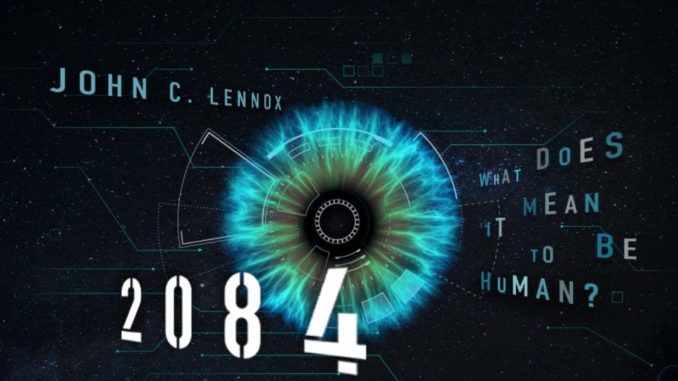
Also by this author: Seven Days that Divide the World
Published by Zondervan on June 2, 2020
Genres: Non-Fiction, Christian Life
Buy on Amazon
Goodreads

Where did we come from? Where we are going? How will the increased incorporation of AI into our lives affect our individual and corporate privacy, the security of our jobs, our political and personal freedoms, and the future of our species as a whole?
Popular answers to these questions portrayed in the bestsellers Sapiens and Homo Deus by historian Yuval Noah Harari and Origins by novelist Dan Brown wildly differ: from utopian vistas of super-humans working alongside super-intelligent AI to Orwellian outcomes where humans are controlled or outcompeted by super-intelligent machines or superior versions of ourselves.
In 2084, scientist and philosopher John C. Lennox addresses the questions of where humanity is going in terms of technological enhancement, bioengineering, and artificial intelligence. He provides a clear overview of the current capacity of AI, its advantages and disadvantages, as well as the potential future implications, clearly defining the terms associated with this field and delineating between the current scientific facts and more speculative claims. Lennox argues that the worldview, and therefore ethics, with which we approach this area will have serious implications for any future AI and how it interacts with humanity.
So…I’m not quite sure what to do with this book. John Lennox is a bona fide genius (PhD, DPhil, DSc, Professor Emeritus at Oxford). He’s the intellectual that comes out to dispute Dawkins, Harris, and the other New Atheists as the resident British scientist in the field of Christian apologetics. And usually he’s quite good. I was very curious what his take on technology and artificial intelligence would be even though those ideas are a bit out of his normal wheelhouse.
Despite its small size and marketing to a general audience, the book is rather dense. If you’re a newcomer to the field or a newcomer to Lennox, you may find yourself lost amid his myriad of scientific and cultural references. I also found that the book leaned too heavily as a response to Dan Brown’s novel Origins and Yuval Harari’s non-fiction books Sapiens and Homo Deus. Readers who do not have a working knowledge of these titles are at a disadvantage as Lennox often writes as if he is providing commentary on those books. There is literally an entire chapter devoted to reviewing Origins and explaining why this fictional novel does not comport with reality.
Lennox shines brightest when he is simply explaining the technology behind artificial intelligence, how it has advanced in recent years, and where top people in the field believe it is going. In these sections, Lennox acts as a journalist rather than a commentator and its in those sections I found Lennox most helpful.
His most helpful commentary comes as a response to Yuval Harari. This is unfortunate because, unless you are familiar with his books, you miss out on a fair amount of context (as well as being able to determine if his critique of Harari is contextual and fair). Readers who are unfamiliar can muddle through, but 2084 fails to stand on its own and is instead propped up by these other works.
In the end, I honestly can’t decide if my disappointment in 2084 comes from my high opinion of Lennox’s previous work, my incorrect expectations, or Lennox’s failure to provide a cohesive, standalone critique of AI. I think it’s a bit of all three. Despite its short size, this was a difficult book to get through and relies too much on other works to construct its own narrative.
